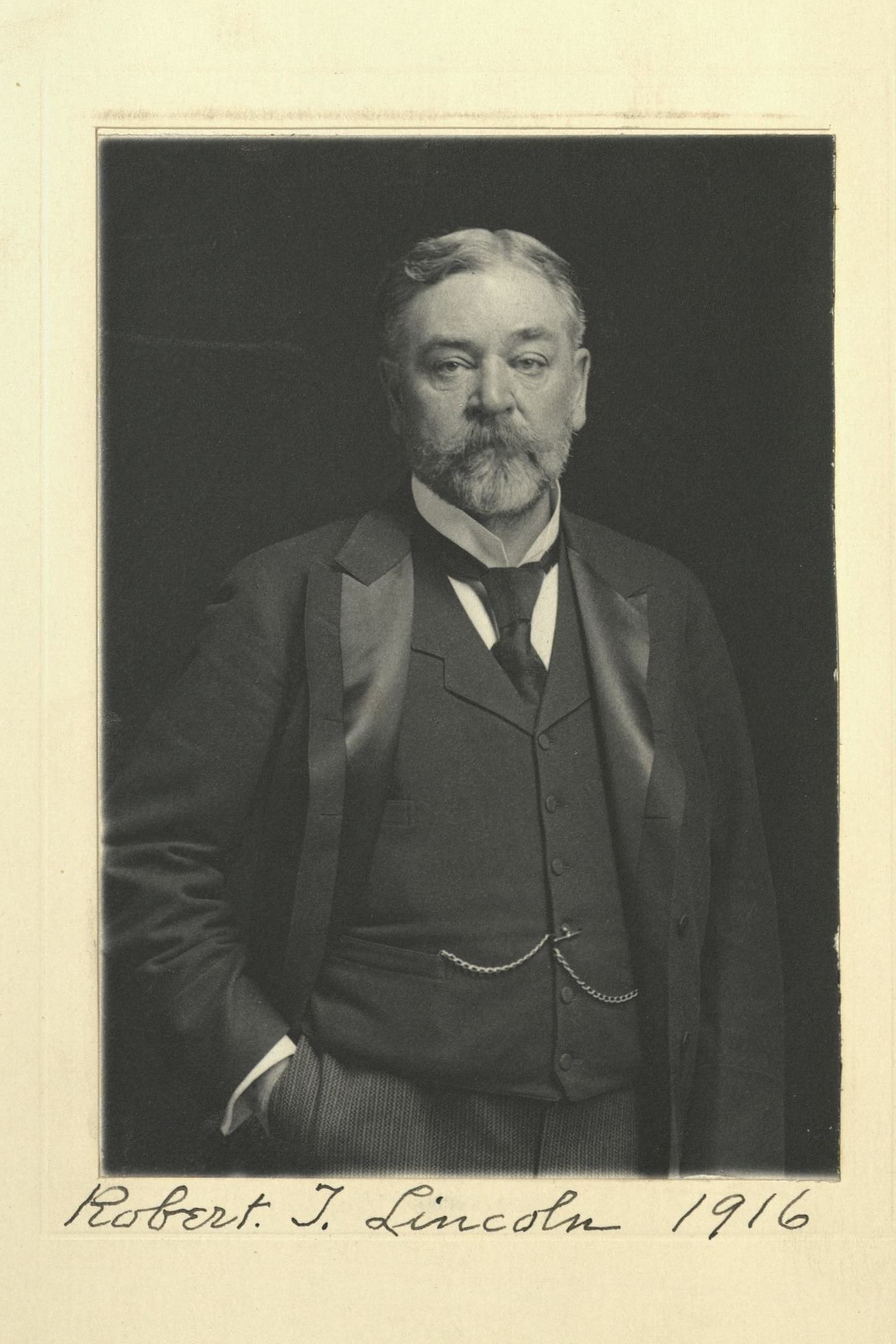U.S. Secretary of War/Ambassador to Great Britain
Centurion, 1916–1926
Born 1 August 1843 in Springfield, Illinois
Died 26 July 1926 in Manchester, Vermont
Buried Arlington National Cemetery , Arlington, Virginia
, Arlington, Virginia
Proposed by Loyall Farragut and Henry Metcalfe
Elected 3 June 1916 at age seventy-two
Archivist’s Note: Son of (nonmember) Abraham Lincoln; father-in-law of Charles Isham
Century Memorial
Publishers tell us that there has never been a time when so many new hands were at work on Abraham Lincoln’s life-story as today, or when public interest in each new narrative of the kind was pitched so high. The one man who might have told the story best was a man who never told it in published writing, who was for ten years a member of the Century yet whom Centurions rarely if ever met —the only surviving son of the War President. Robert Todd Lincoln was in many respects the antithesis of his celebrated father. In speech he was reticent, in aspiration for public life reluctant. Although Secretary of War under Garfield and Minister to England under Harrison, he left no special mark of his personality on official life. Even physically his stout figure, broad features, and medium height contrasted curiously with the great administrator whose tall, ungainly, angular form and furrowed face are familiar to every school-child.
Captain Lincoln (for he held that rank and served as Grant’s aide-de-camp in the Civil War) could never be persuaded to publish his recollections of his father. This unwillingness to spread before an eager public the story of the intimate family affiliation was in its way a pleasing characteristic, for these are days when death of a distinguished man is usually the signal for friends and family to rush to a “syndicate” with their reminiscences. Mr. Lincoln’s attitude may have reflected sense of a memory too tender and sacred to be broadcasted. It may have indicated very honorable dislike at seeming to court individual publicity by use of his father’s reputation. Yet no one can wholly avoid regret that posterity should not have had his sketch of the household circle, to supplement the divergent pictures drawn by the President’s private secretaries, by the law-partner Herndon and by the diary writing Secretary of the Navy, or the endless series of anecdotes stored up and afterward re-told by the procession of men in public and private life who passed like a moving-picture film across the scene of the Lincoln administration.
Alexander Dana Noyes
1927 Century Association Yearbook

